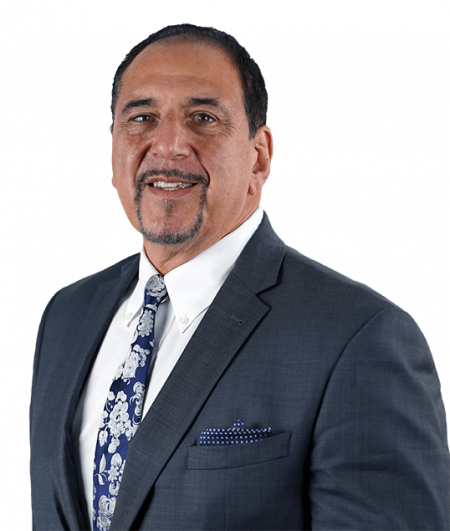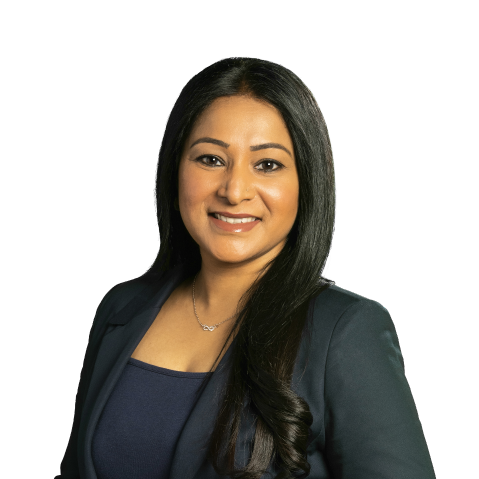Superannuation death benefit
Superannuation death benefit claims: Your rights, our fight
Superannuation death benefit claims typically emerge during challenging times for families coping with the loss of a loved one. If you feel you’ve been unfairly denied a death benefit, you’re not alone; such disputes are common and frequently misunderstood.
At GMP Law, we understand the emotional and financial challenges these situations can create. Our experienced superannuation lawyers are dedicated to guiding you through the claims process, helping you secure the benefits you deserve. We aim to provide the support and resources necessary to navigate this challenging period and ensure your family’s financial stability.
Why Choose Gerard Malouf & Partners

Understanding superannuation death benefit
A superannuation death benefit is typically paid out as a lump sum or pension to named beneficiaries upon the death of the fund member.
Unlike personal assets, superannuation is held in a trust managed by the fund trustee, who governs disbursements according to superannuation laws. This means the death benefit cannot be included in a Will; beneficiaries must be explicitly nominated, often through a binding death benefit nomination (BDBN). You can also choose to designate a reversionary beneficiary to receive a pension-style income stream.
It’s important to regularly update these nominations to ensure your wishes are followed following your passing. Our superannuation lawyers can help you explore your options.
Eligibility to claim superannuation death benefit
The following individuals are eligible to claim a superannuation death benefit:
- A spouse
- A child under 18
- A child aged 18 to 25 who is financially dependent on you
- A disabled child.
Depending on how beneficiary nominations have been managed, the fund member’s wishes may be firmly upheld or may be subject to disputes.
Beneficiary nomination types
1. No Nomination
- Trustee controls distribution if no nomination is made
- They can choose eligible beneficiaries or assign the benefit to the estate
- This can lead to disputes among potential beneficiaries.
Non-Binding Nomination
- States desired beneficiaries but allows trustee discretion in payment distribution
- Trustees may consider recent personal changes of the member or beneficiaries
- Delays in trustee decisions can tie up funds and complicate payouts.
Binding Death Benefit Nomination (BDBN)
- Overrides trustee discretion, allowing specific payments to chosen beneficiaries
- Can expedite payouts after death
- Expires after three years unless renewed; if not renewed, it reverts to no nomination
- SMSFs may have different rules regarding BDBNs.
Non-Lapsing BDBNs
- Remains valid until deliberately cancelled or replaced, without a three-year expiry
- Not all super funds, especially SMSFs, offer this option.
Reversionary Nomination
- Allows for the transfer of income stream benefits to a specific beneficiary, typically a spouse
- The trustee continues to pay the super pension to the designated beneficiary.
If you’re uncertain if you are entitled to a superannuation death benefit based on the nomination type or Will, we encourage you to reach out. Our free initial consultation means you have nothing to lose by exploring your options.
We're here to help.
Factors affecting compensation
Several factors can impact the compensation of a superannuation death benefit, including:
- The type of nomination made (binding or non-binding)
- Whether the benefit is paid as a lump sum or income stream
- The relationship of the beneficiary to the deceased
- Any outstanding estate debts or tax implications.
Superannuation death benefits are generally considered separate from the deceased’s estate and typically cannot be used to pay off estate debts unless specific provisions are made. Additionally, the tax treatment of benefits can vary based on the beneficiary’s relationship to the deceased and their age at the time of death.
At GMP Law, we’re committed to helping you understand your rights and options. We’ll work tirelessly to ensure you receive the maximum compensation you’re entitled to under the law.

No Win No Fee
Fee transparency that you can trust
At GMP Law, we’re committed to ensuring you have nothing to lose.
If we don’t win your case, you won’t pay a cent for our services. This means you can focus on healing without worrying about legal costs.
How it works
No upfront costs
No contingency fee
We’ll only charge you if we win.
We maintain integrity by carefully evaluating each case. If we believe it’s unlikely to result in compensation or if the costs outweigh the benefits, we won’t take it on.
This commitment to our client’s best interests, as well as fee transparency, sets us apart from other law firms.
With a 98% success rate and over $4 billion in settlements, we’re dedicated to delivering exceptional results for our clients.
Frequently asked questions about superannuation death benefit claims
When do I need to consult a lawyer about a superannuation death benefit dispute?
If you are named as a beneficiary of a superannuation death benefit, you will receive a disbursement upon the member’s passing. However, if this is disputed, it’s essential to consult a superannuation law firm to help defend your claim.
Conversely, if you believe you were unfairly excluded from the benefits despite being a qualified individual, or if you suspect the fund owner was coerced, you may have grounds for a dispute.
Remember, you generally have 28 days from notification of an incorrect payout to lodge a complaint.
GMP Law offers free initial consultations to help individuals determine if they have a viable case. Our experienced lawyers can guide you through the complex process of evaluating your situation.
Is a superannuation death benefit taxable?
The tax treatment of a superannuation death benefit—whether as a lump sum or pension—depends on several factors, including:
- Your relationship to the deceased (dependent or non-dependent)
- Whether the payment is a death benefit income stream or a lump sum
- If the income stream is capped defined benefit or account-based
- Whether the superannuation is tax-free or taxable
- If taxes have already been paid on the taxable component
- Your age
- The age of the superannuation owner at the time of their death.
The tax implications are as follows:
- Dependents receiving a lump sum do not pay tax on the taxed element
- Non-dependents receiving a lump sum face tax rates of:
- Untaxed component: up to 30% plus Medicare levy
- Taxed component: up to 15% plus Medicare levy.
- For dependents receiving the benefit as an income stream:
- If either party was over 60 at death, the income is tax-free
- If both were under 60, taxable income from the benefit will incur taxes, but you may receive a 15% tax offset. Once you turn 60, disbursements become tax-free. If the income stream is from an untaxed fund, your maximum tax rate applies, with a 10% tax offset available after turning 60.
For clarity on potential tax obligations related to a superannuation death benefit, consulting a financial adviser is highly recommended. Proper financial guidance can help you navigate the complexities and avoid issues with tax authorities.
Can superannuation be used to pay estate debts?
Generally, Australian law does not permit superannuation death benefit funds to be used for paying off estate debts. These funds are typically considered “untouchable” by creditors.
However, there are exceptions:
- If you specifically direct the superannuation funds into your estate
- If you do not nominate a beneficiary, the trustee may decide to pay the death benefit into your estate.
In these cases, the funds could be accessed to settle outstanding debts.
What are the different types of beneficiary nominations?
Beneficiary nominations can be binding, non-binding, or reversionary. A binding nomination ensures the benefit goes to specified individuals, while a non-binding nomination gives the trustee discretion. A reversionary nomination allows a designated beneficiary to continue receiving benefits as a pension.
What happens when a Will conflicts with a binding nomination?
When a will conflicts with a binding nomination for a superannuation death benefit, the binding nomination takes precedence. If the superannuation fund pays the estate, the executor may need to apply for a grant to access those funds. The superannuation money will be disbursed according to the binding nomination, regardless of what the Will states about the distribution of the estate.
Learn more: What happens to your super when you die?
Real cases, real results
The compensation claim process: Your journey with GMP Law
Initial consultation
Evidence gathering
Claim submission
Negotiation
Court representation
Ongoing support
Our promise to you
Why trust GMP Law with your death benefit claim?
At GMP Law, we handle your claim so you can concentrate on what matters most: your recovery.
We commit to
Clear, straightforward communication
Regular updates on your case as it progresses
A personal injury lawyer who understands your unique situation
Vigorous negotiation to maximise your compensation
Empathetic support throughout your journey
Specialised knowledge
Our accredited personal injury lawyers have years of experience in accident injury claims, giving us deep insight into the nuances of these claims.
Proven track record
Difficult case policy
Australia-wide assistance
With lawyers across the country, we’re here to help, wherever you are.
Meet the Superannuation Claim team
Meet some of the diverse and dynamic compensation lawyers who support our clients with their claims.
We're here to help maximise your compensation
Book your free, confidential consultation with one of our superannuation death benefit lawyers using the form below, or simply call us 1800 004 878.



